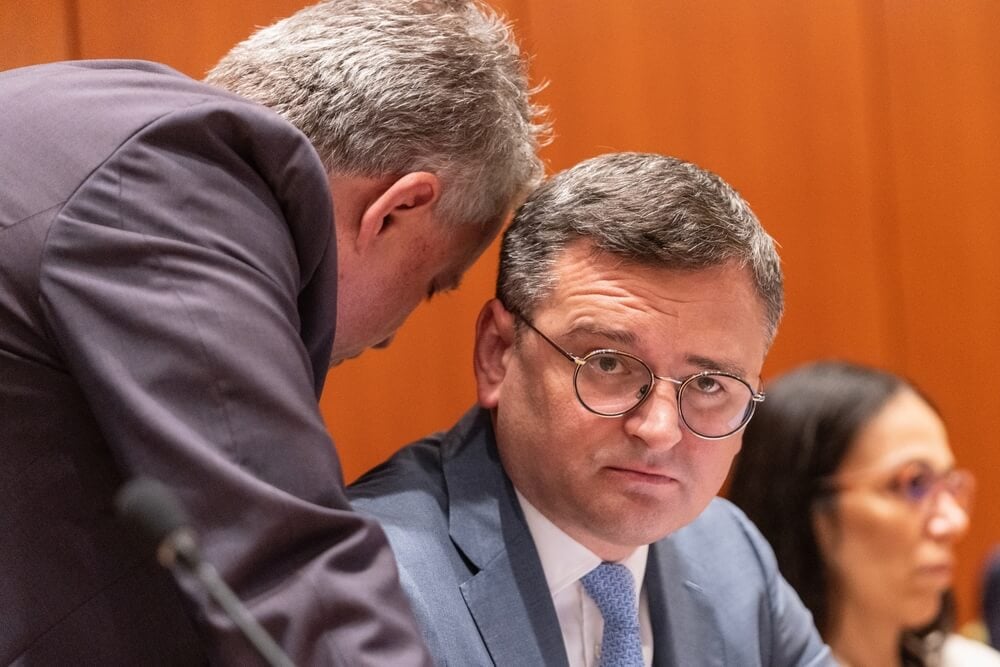Mali is one of the hungriest countries in the world but it took Ukraine’s reported support for Russian-backed rebels and an ensuing diplomatic spat for the country to hit the headlines recently.
Mali severed ties with Ukraine on 4 August after a spokesperson for Ukraine's military intelligence agency said Tuareg rebels had received the “necessary” information to conduct an attack that killed at least 47 Malian soldiers and 84 Russian mercenaries from Africa Corps, formerly called Wagner Group.
Niger followed suit and cut its diplomatic ties with Ukraine while Mali expelled Sweden’s ambassador after the Nordic country said it would phase out aid over Mali’s ties to Moscow. Senegal, meanwhile, summoned the Ukrainian ambassador.
The diplomatic row threatens to worsen the humanitarian situation in the Sahel where conflict, drought and floods are deepening people’s dependence on aid.
Recent military coups in Mali, Niger and Burkina Faso have shifted these countries away from the West and towards Russia for support in their fight against groups linked to Islamic State and Al Qaeda.
The Sahel “coup belt”
The Sahel “coup belt” accounted for nearly half of all terrorism deaths in 2023, according to the Global Terrorism Index. But Western governments have yet to heed calls by analysts to drop their objections to dealing with dictatorships to address the regional crisis.
“Western partners are struggling to navigate this complex environment and operate in a new era of multipolar diplomacy, in which power is diffused among several global powers vying for influence,” says the Global Initiative Against Transnational Organised Crime civil society group.
The coups had alienated Western countries after having tried to help in the battle against violent extremist organisations
It said there was an “information black hole” with security implications for the wider region because the coups had alienated Western countries after having tried to help in the battle against violent extremist organisations.
After Tuareg rebels launched an uprising in 2012, the former colonial power France deployed thousands of soldiers to Mali while a UN peacekeeping force, MINUSMA, also supported the Malian military’s fight against the separatists and terrorist groups.
But Mali’s military junta seized power in 2020, kicked out the French soldiers and MINUSMA, and started getting support from Russian fighters.
Ukraine’s goals in Africa
Ukraine’s claim of actively supporting the Tuareg against the Russians may have been exaggerated and unlikely to happen again, not least because it put Ukraine in the uncomfortable position of seemingly supporting terrorist groups.
In an effort to win support in Africa, Dmytro Kuleba, Ukraine’s foreign minister, went on a tour to Malawi, Zambia and Mauritius but his goal will be difficult. After the Russian invasion of Ukraine in 2022, only 28 of 54 African states voted to condemn the invasion at the UN General Assembly.
While only a few African countries voted for Russia, many others abstained. Few African countries openly condemned Russia even when Russian President Vladimir Putin pulled out of a deal allowing Ukrainian and Russian grain exports that benefited Africa. Ukraine has since regained the ability to export grain.
 In an effort to win support in Africa, Dmytro Kuleba, Ukraine’s foreign minister, went on a tour to Malawi, Zambia and Mauritius but his goal will be difficult
In an effort to win support in Africa, Dmytro Kuleba, Ukraine’s foreign minister, went on a tour to Malawi, Zambia and Mauritius but his goal will be difficult
Kyiv is aiming to build a 20-embassy African network, with the first 10 extra missions already announced, the BBC reported, while eight sub-Saharan countries have benefitted from its “Grain from Ukraine” food aid initiative.
But Western counter-terrorism efforts remain stymied in the Sahel. The US had relied on Niger as its primary base for monitoring jihadists in the region but in March, Niger announced the end of its military agreement with the US.
Six years ago, the US built a $110 million military base in Niger. Now, more than 1,000 American troops are due to leave the country no later than 15 September while Russian military instructors have arrived in Niger under a new agreement with the junta.
“Both the al-Qaeda-affiliated Jama'at Nasr al-Islam wal Muslimin (JNIM) and Islamic State Sahel Province (ISSP), Islamic State’s local affiliate, have been growing in strength and reach over the past year, and now control large swaths of territory stretching throughout the region,” says the Soufan Centre think tank.
Aid support will be lower
There is even a risk that ISSP could establish a mini caliphate that draws in fighters from elsewhere in Africa and further afield.
The turmoil makes it difficult for Western countries not only to address the security risks but also to deliver humanitarian aid as part of efforts to lessen the allure of extremism and even curb migration.
In Mali, between 1.5 million to 2 million people need emergency food aid, with parts of the country at either emergency or catastrophe levels of food insecurity under a UN classification.
“You cannot support Russia's illegal war of aggression against Ukraine and at the same time receive several hundred million crowns each year in development aid” - Johan Forssel
Nearly 33 million vulnerable women, children and men in Burkina Faso, Cameroon's Far North region, Mali, Niger, north-eastern Nigeria, and south-western Chad need humanitarian and protection services, says the UN.
But only 25% of the UN’s Humanitarian Response Plans requiring a total of $4.7 billion to support 20.9 million people has been received.
After the most recent turmoil involving Ukraine, aid support will be even lower.
“You cannot support Russia's illegal war of aggression against Ukraine and at the same time receive several hundred million crowns each year in development aid,” Johan Forssel, Sweden's minister for international development cooperation and trade, said on X.